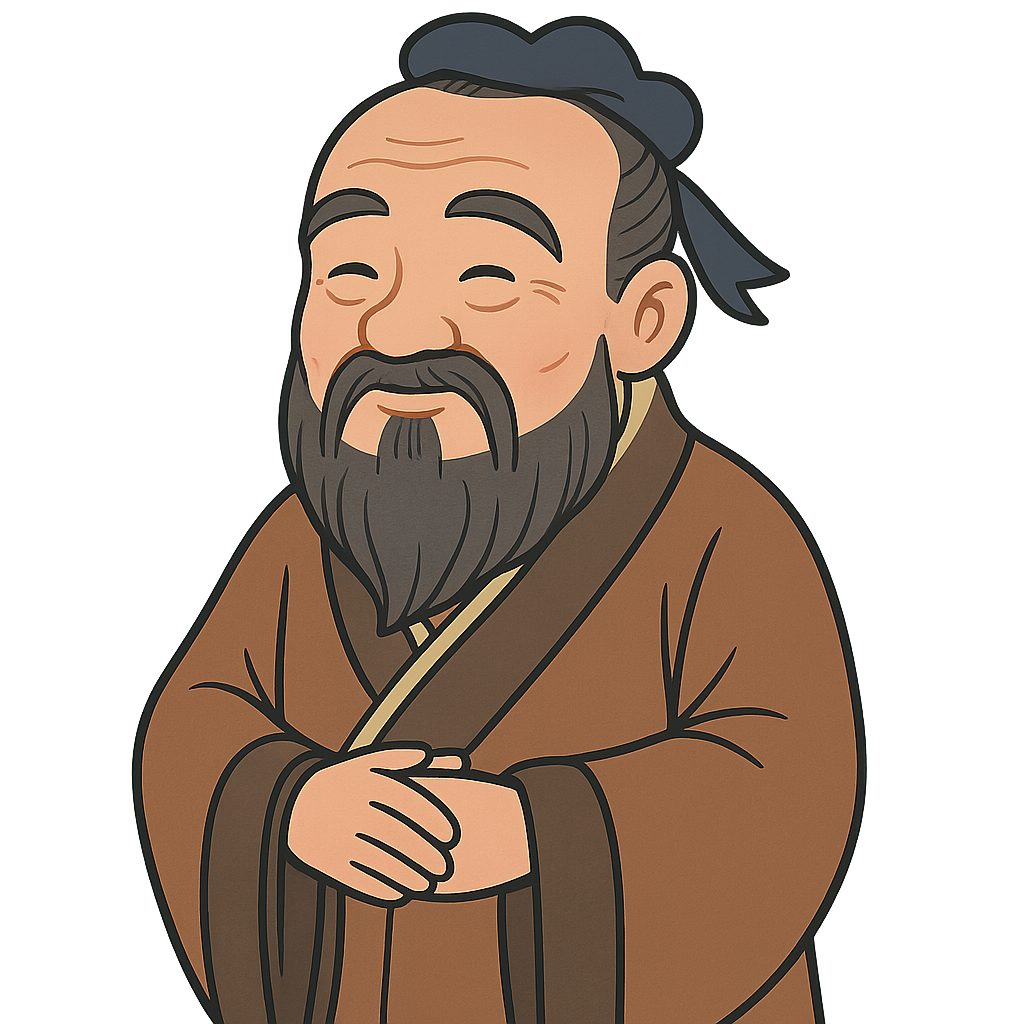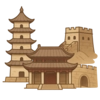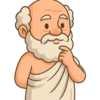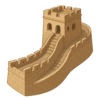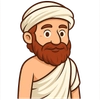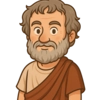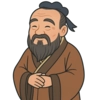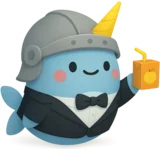Confucius
Hello there. My name is Kǒng Qiū, but throughout history, most people have come to know me by another name: Confucius. My story begins a very long time ago, over 2,500 years, in fact. I was born in the year 551 BCE in a small state called Lu, which is part of the country you now know as China. My family had once been important, but by the time I was born, we had fallen on hard times and were quite poor. My father passed away when I was just a little boy, so my mother worked very hard to raise me. Even though we didn't have much money, I had a deep hunger for knowledge. While other boys might have played games with sticks and stones, I loved to learn about the past. I would pretend to conduct the ancient ceremonies of our ancestors, carefully arranging objects and studying the old rituals and music. I read every book I could get my hands on, learning about history, poetry, and the ways of the world. Even then, I could see that the world around me was often unfair and chaotic. Rulers were not always kind, and people were not always good to one another. I dreamed of finding a way to bring back harmony and kindness to everyone.
When I grew up, I got a job working for the government of Lu. I held a few different positions, including looking after granaries and farm animals. In my work, I saw firsthand how leaders often made selfish choices that hurt the common people. I believed that the problem wasn't that people were bad, but that they had forgotten how to be good. I knew then that my true calling wasn't just to work for one prince, but to teach everyone. I decided to become a teacher. This was a bold idea, because in those days, only the sons of rich and powerful families usually received an education. But I believed that anyone who truly wanted to learn should have the chance, whether they were rich or poor. I gathered a group of students around me, and we became like a family. I didn't teach them how to get rich or famous. Instead, I taught them how to become good people. My most important teaching was about rén, which means humanity, kindness, and compassion for others. I told them, "Do not do to others what you do not want done to yourself." I also taught them the importance of lǐ, which is about proper conduct, respecting your family and elders, and honoring traditions. For many years, I traveled with my students from state to state, hoping to advise rulers on how to govern with justice and wisdom. It was a long and difficult journey. Many leaders were more interested in power than in kindness, and they did not always listen to my advice. But I never gave up hope that my ideas could make the world a better place.
After many years of traveling, I returned to my home state of Lu as an old man. I was tired from my long journey, but my work was not finished. I spent my final years teaching the loyal students who had stayed with me and collecting and organizing the classic books of poetry, history, and rituals that I loved so much. I wanted to make sure this ancient wisdom was preserved for everyone who came after me. In the year 479 BCE, my long life came to an end. But my story did not end there. My students were heartbroken, but they were also determined that my teachings would not be forgotten. They gathered all their notes and memories of our conversations and wrote them down in a book that came to be called the Analects. Because of their dedication, my ideas about kindness, respect, and the importance of learning have lived on for thousands of years. Looking back, I see that a simple idea—that we can all learn to be better, kinder people—is the most powerful idea of all. It shows that one person's voice can echo through time and continue to inspire goodness in the world long after they are gone.
Activities
Take a Quiz
Test what you learned with a fun quiz!
Get creative with colors!
Print a coloring book page of this topic.

